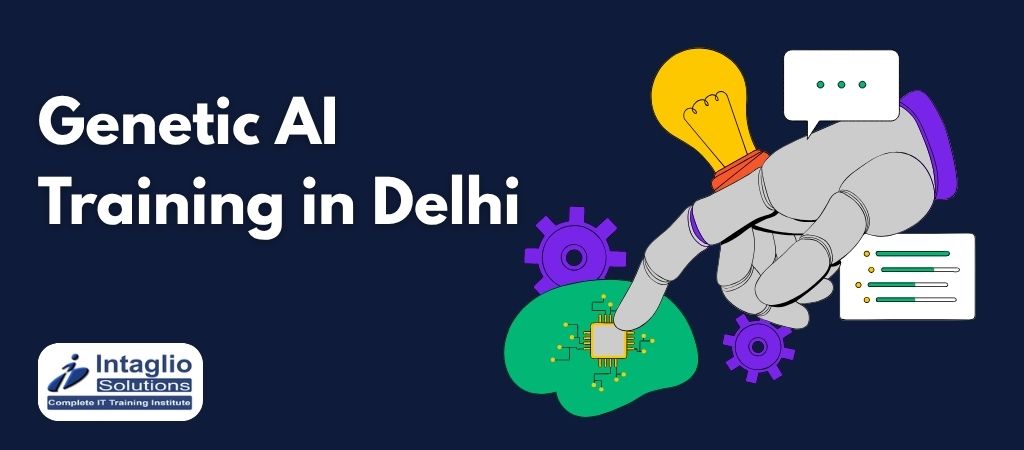
Understand The Impact of Genetic AI Training Course
A genetics and genetic engineering artificial intelligence (AI) training course, also known as an AI in genetic engineering course, emphasises on applying machine learning and other AI methods to address issues in the field. These courses of Genetic AI training in delhi usually address topics like genomic data analysis, AI-driven genetic modelling, and the application of AI in fields like personalised medicine and drug development.
Fundamental Idea:
The genetic algorithm (GA) is predicated on the notion that organisms evolve through natural selection. The fittest individuals are more likely to procreate and pass on their traits to the following generation via this process.
Genetic algorithms (GA) are used by artificial intelligence researchers to iteratively sift through a population of possible solutions to a problem until they find the best one.
When it comes to optimisation, GA’s excel at solving problems that call for selecting the optimum solution from a range of options.
Here's an even more thorough explanation:
About the contents:
It is standard procedure to introduce AI and machine learning to students by summarising the core ideas, theories, and procedures of the discipline. Neural networks, deep learning, and machine learning are often used components of this understanding.
Genomic and bioinformatics:
This comprehensive genomics course will cover a wide range of topics, including gene expression investigations, genomic sequencing, and bioinformatics tools.
Gene editing, CRISPR, and the enhancement of gene editing techniques through artificial intelligence (AI) are only a few of the numerous possible applications of AI in genetics. The technique of applying AI and machine learning to find possible drug candidates is another application of AI.
Personalised medicine develops customised treatment strategies based on each patient's distinct genetic composition.
AI is being used in disease diagnosis and prediction to identify individuals who may have inherited illnesses.
Real-world case studies and hands-on assignments are also included in some Intaglio Solutions Gen AI training in Delhi classes. By doing this, Intaglio Solutions intends to provide students practical experience using AI to solve genetic engineering problems.
Moral Considerations:
The ethical concerns surrounding the use of AI for genetic engineering may also be covered in some courses.
Why would someone want to enrol in a genetic AI course?
Gaining experience and marketable talents in a field that is seeing rapid expansion is the best method to go up the corporate ladder.
Developments in Agriculture, Healthcare, and Other Domains: You have the chance to significantly advance these and other disciplines with the use of AI-driven solutions.
Resolving Issues:
Build the ability to use AI techniques to address difficult genetic engineering problems.
Contribute to the development of more individualised and efficient medical treatments by using personalised medicine.
Biotechnology professionals—those currently working in the field who are eager to discover ways to incorporate AI into their daily work—make up its target audience.
Scientists:
Professionals and academics who are interested in using AI to research genetics, genomics, and related fields.
A person with a strong background in genomics and a strong desire to use their knowledge of data analysis and machine learning is known as a data scientist.
Members of the scholarly community:
Those who are eager to gain skills in artificial intelligence and have a background in genetic engineering, bioinformatics, or a similar discipline.
Although they are related to artificial intelligence, genetic AI—also known as genetic algorithms—and generative AI are two different concepts. Using previously learnt patterns, generative AI aims to recreate data (text, images, etc.). The second type of algorithm is referred to as a genetic algorithm for search and optimisation. Genetic algorithms can optimise the design or parameters of generative AI models, and generative AI data can be used to train genetic algorithms. These two applications are both feasible.
Final Thoughts
Genetic algorithms offer a novel approach to machine learning that uses biological inspiration to address problems. Although they might not completely replace traditional approaches, their capacity to handle difficult optimisation tasks makes them a useful tool.
